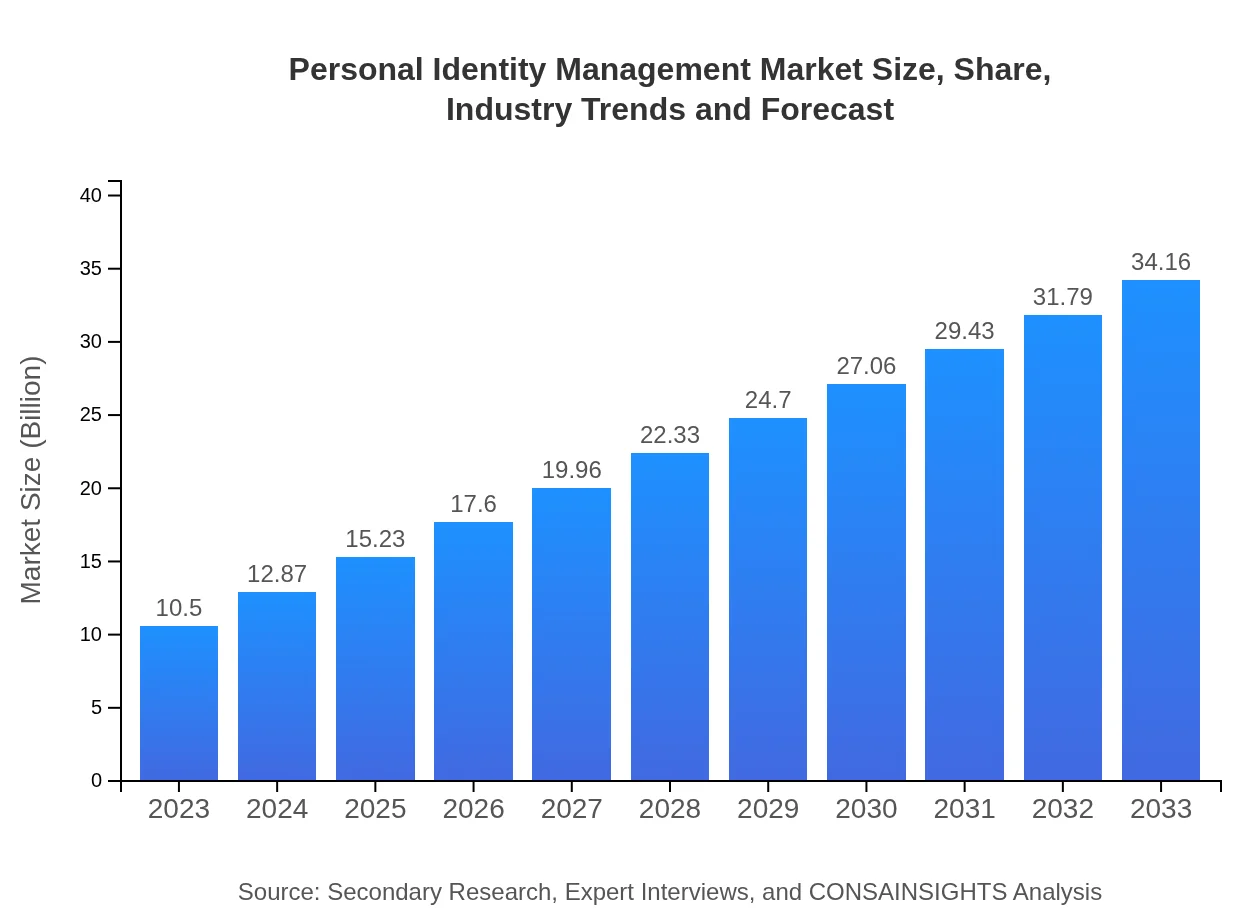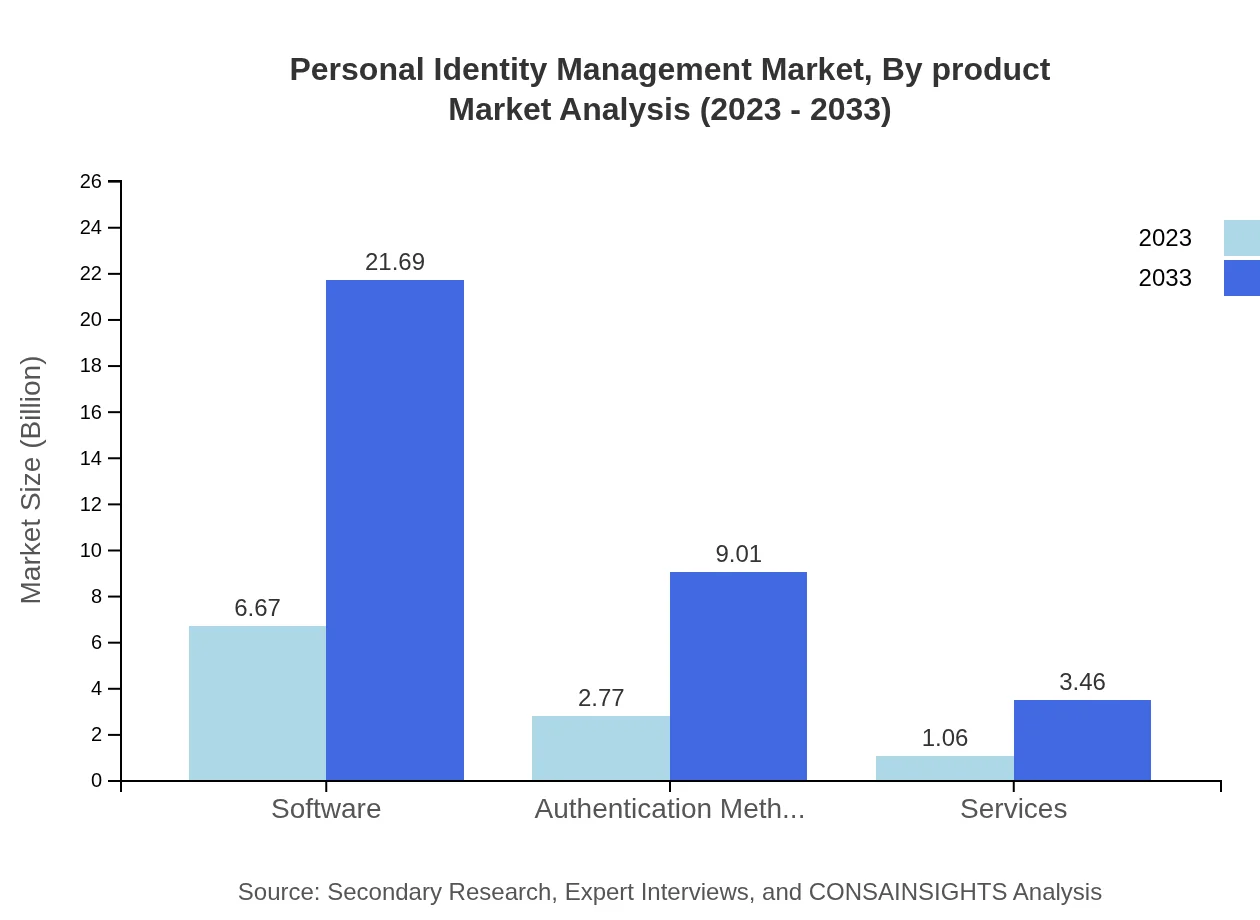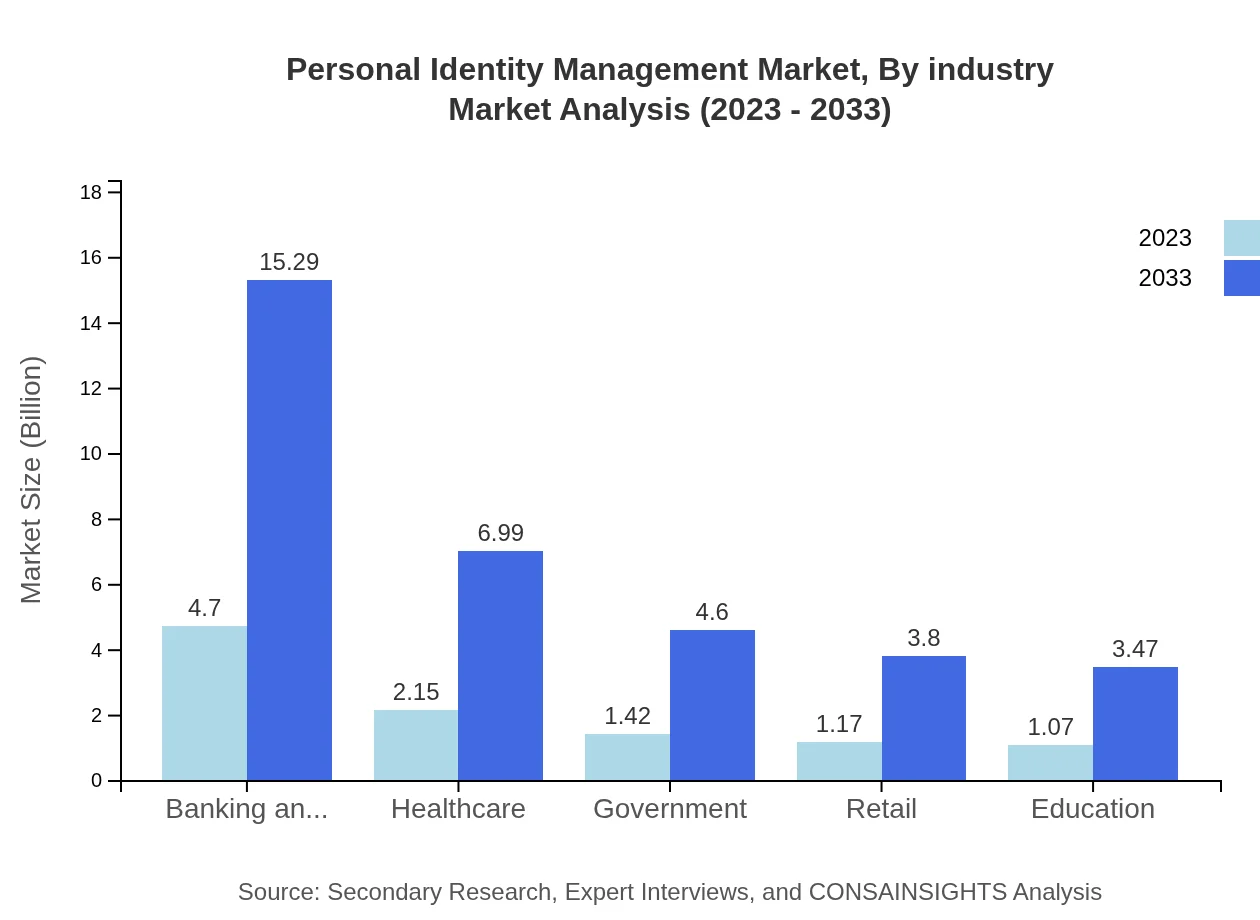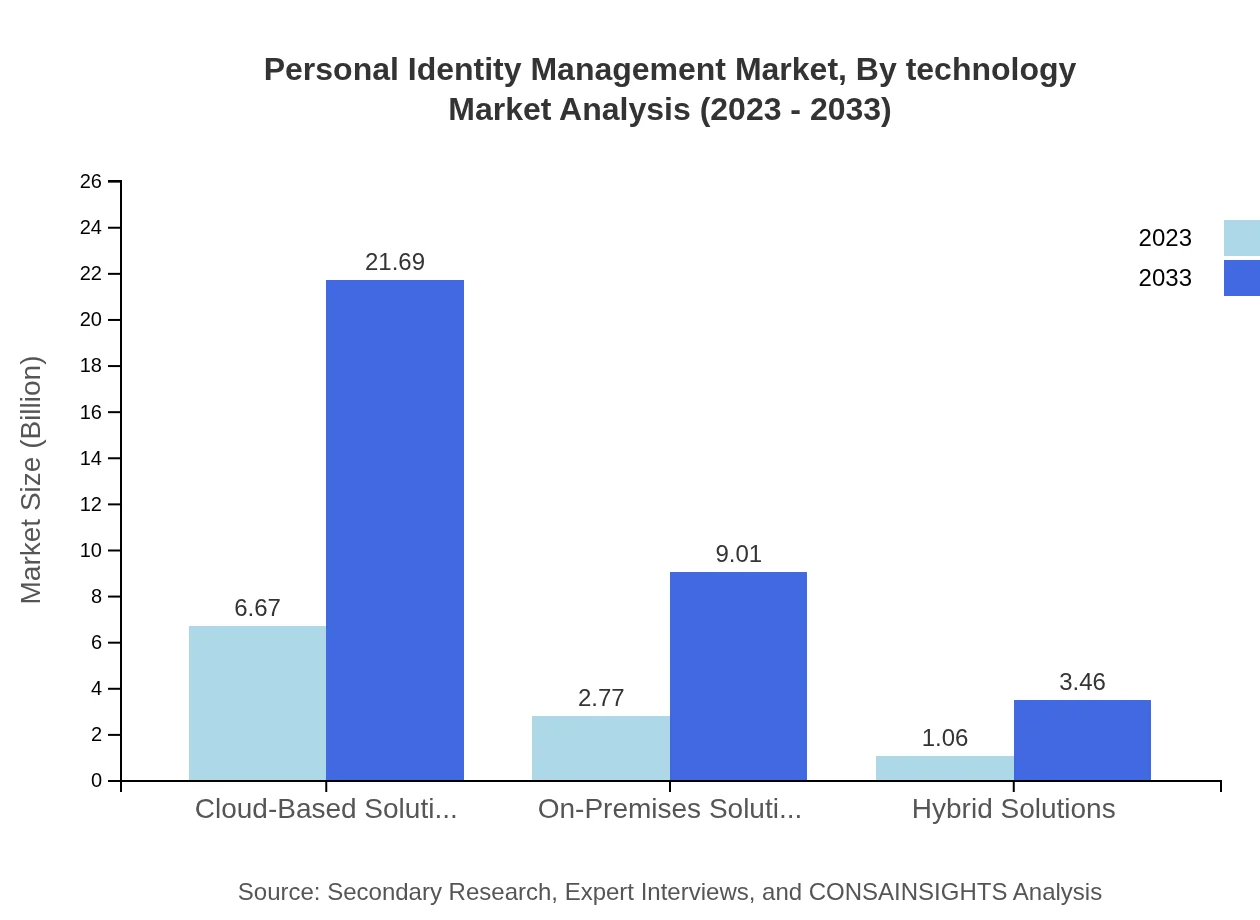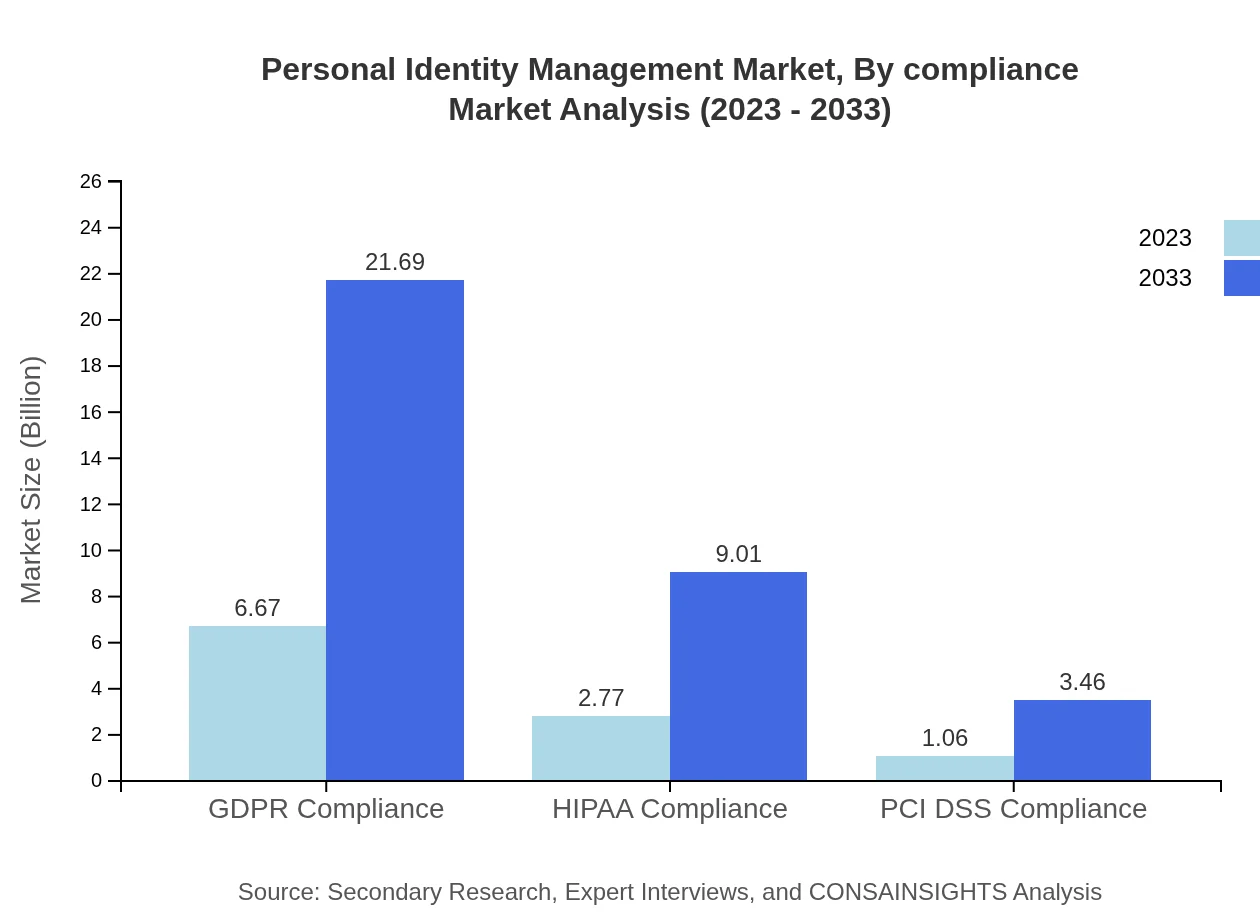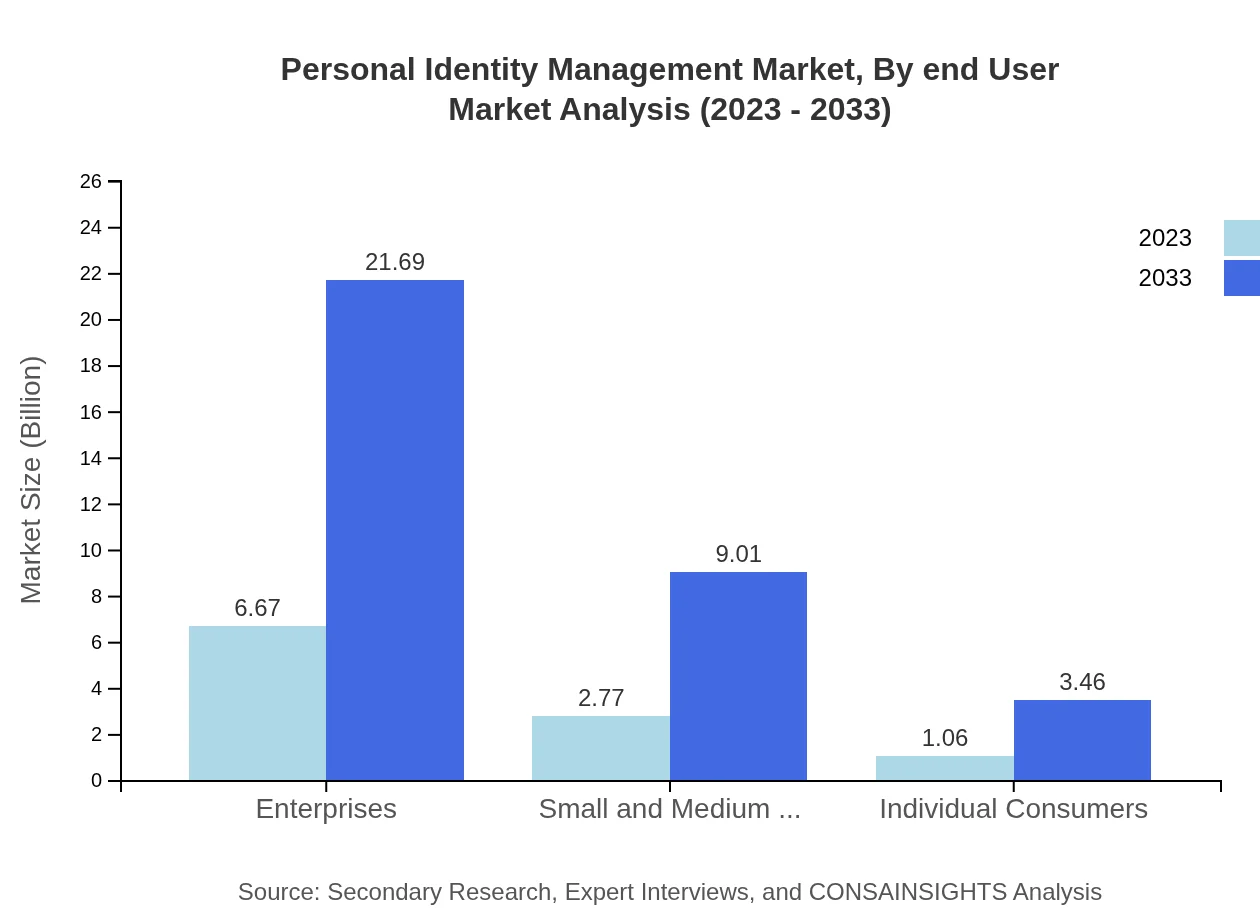Personal Identity Management Market Report
Published Date: 31 January 2026 | Report Code: personal-identity-management
Personal Identity Management Market Size, Share, Industry Trends and Forecast to 2033
This report provides an in-depth analysis of the Personal Identity Management market, including key insights, regional performance, industry trends, and future forecasts for the period 2023 to 2033.
| Metric | Value |
|---|---|
| Study Period | 2023 - 2033 |
| 2023 Market Size | $10.50 Billion |
| CAGR (2023-2033) | 12% |
| 2033 Market Size | $34.16 Billion |
| Top Companies | IBM Corporation, Microsoft Corporation, Oracle Corporation, Okta, Inc., SailPoint Technologies, Inc. |
| Last Modified Date | 31 January 2026 |
Personal Identity Management Market Overview
Customize Personal Identity Management Market Report market research report
- ✔ Get in-depth analysis of Personal Identity Management market size, growth, and forecasts.
- ✔ Understand Personal Identity Management's regional dynamics and industry-specific trends.
- ✔ Identify potential applications, end-user demand, and growth segments in Personal Identity Management
What is the Market Size & CAGR of Personal Identity Management market in 2023?
Personal Identity Management Industry Analysis
Personal Identity Management Market Segmentation and Scope
Tell us your focus area and get a customized research report.
Personal Identity Management Market Analysis Report by Region
Europe Personal Identity Management Market Report:
The European market is anticipated to expand significantly, from $2.92 billion in 2023 to $9.50 billion by 2033. The implementation of strict privacy regulations like GDPR is propelling demand for compliance-driven identity management solutions.Asia Pacific Personal Identity Management Market Report:
The Asia Pacific region is projected to experience robust growth in the Personal Identity Management market, from $2.09 billion in 2023 to $6.78 billion by 2033. Key drivers include the increasing adoption of digital payments, a growing population of internet users, and rising government initiatives aimed at enhancing cybersecurity.North America Personal Identity Management Market Report:
North America dominates the Personal Identity Management market, with a forecasted growth from $3.67 billion in 2023 to $11.93 billion by 2033. The high concentration of key players, coupled with a strong regulatory framework and increased awareness about identity theft, drives this growth.South America Personal Identity Management Market Report:
In South America, the market is expected to grow from $0.66 billion in 2023 to $2.15 billion by 2033. The region is witnessing advancements in technology adoption, although it still faces challenges such as economic instability and regulatory hurdles that could impact growth.Middle East & Africa Personal Identity Management Market Report:
The Middle East and Africa region is witnessing increased investments in digital transformation, leading to a projected growth from $1.17 billion in 2023 to $3.79 billion by 2033. The increasing number of online transactions and mobile banking users is driving the need for effective identity management.Tell us your focus area and get a customized research report.
Personal Identity Management Market Analysis By Product
The PIM market by product type includes software solutions, which are projected to grow from $6.67 billion in 2023 to $21.69 billion by 2033, representing a significant share of the market. Services also provide crucial support, anticipated to grow from $1.06 billion to $3.46 billion in the same period.
Personal Identity Management Market Analysis By Industry
The industry segment analysis indicates high market shares for banking and financial services, growing from $4.70 billion in 2023 to $15.29 billion by 2033. Healthcare follows, with growth from $2.15 billion to $6.99 billion, highlighting the critical need for identity management in compliance-sensitive sectors.
Personal Identity Management Market Analysis By Technology
The market driven by technology demonstrates substantial growth in cloud-based solutions, growing from $6.67 billion in 2023 to $21.69 billion by 2033. Hybrid and on-premises solutions are also important, but show smaller growth rates compared to cloud technology.
Personal Identity Management Market Analysis By Compliance
In terms of compliance, GDPR compliance solutions dominate, with market size expanding from $6.67 billion in 2023 to $21.69 billion by 2033, reflecting the importance of regulatory adherence. HIPAA and PCI DSS solutions are also significant, ensuring proper standards are met in sensitive industries.
Personal Identity Management Market Analysis By End User
The end-user analysis highlights substantial demand from enterprises, with projected growth from $6.67 billion to $21.69 billion. Small and Medium Enterprises (SMEs) also exhibit healthy growth, reflecting a shift towards better identity management across all business sizes.
Personal Identity Management Market Trends and Future Forecast
Tell us your focus area and get a customized research report.
Global Market Leaders and Top Companies in Personal Identity Management Industry
IBM Corporation:
IBM provides advanced identity management and access governance solutions with a focus on enterprise-level security and compliance.Microsoft Corporation:
Microsoft offers robust identity and access management solutions integrated with Azure and other SaaS platforms, enhancing user security.Oracle Corporation:
Oracle specializes in identity management solutions that comply with various regulations, aimed at managing user identities on cloud and on-premise applications.Okta, Inc.:
Okta is a leading provider of identity solutions that ensures secure access for users across a multitude of applications and devices.SailPoint Technologies, Inc.:
SailPoint focuses on identity governance, helping organizations maintain compliance while managing access to sensitive data.We're grateful to work with incredible clients.









FAQs
What is the market size of Personal Identity Management?
The global Personal Identity Management market is valued at approximately $10.5 billion in 2023 and is projected to grow at a CAGR of 12% through 2033. This growth indicates a robust demand for solutions that enhance identity security.
What are the key market players or companies in the Personal Identity Management industry?
Key players in the Personal Identity Management market include major technology firms and software providers specializing in identity management, cloud security, and compliance solutions. Industry leaders play a significant role in shaping market trends and advancing technology.
What are the primary factors driving the growth in the Personal Identity Management industry?
Primary factors driving growth include increasing identity theft incidents, the rise in online transactions, and stringent data privacy regulations. The demand for robust security solutions to protect personal data fuels innovation and expands market opportunities.
Which region is the fastest Growing in the Personal Identity Management market?
North America is the fastest-growing region in the Personal Identity Management market, with a projected growth from $3.67 billion in 2023 to $11.93 billion by 2033, reflecting a growing emphasis on security technology in enterprises.
Does ConsaInsights provide customized market report data for the Personal Identity Management industry?
Yes, ConsaInsights offers tailored market report data for the Personal Identity Management industry. Custom reports can focus on specific regions, segments, or trends, providing in-depth insights that meet your unique business needs.
What deliverables can I expect from this Personal Identity Management market research project?
From the Personal Identity Management market research project, expect comprehensive deliverables including detailed market analysis, trends, forecasts, competitor analysis, and tailored recommendations to inform strategic decision-making and investment.
What are the market trends of Personal Identity Management?
Current trends in the Personal Identity Management market include increased adoption of cloud-based solutions and emphasis on compliance with regulations like GDPR. Organizations prioritize identity security, integrating innovative technologies to optimize user experiences and enhance data protection.

